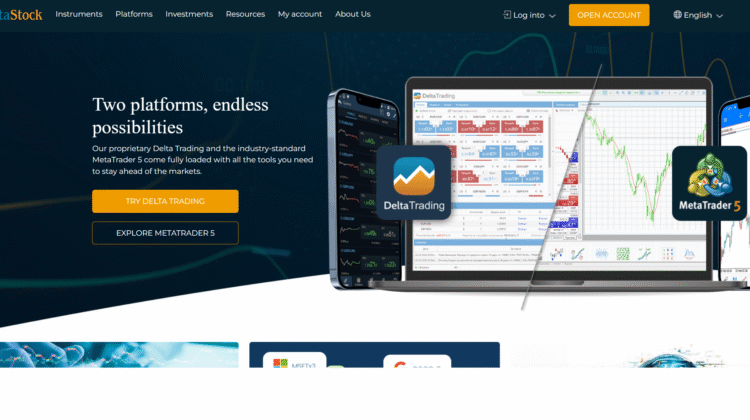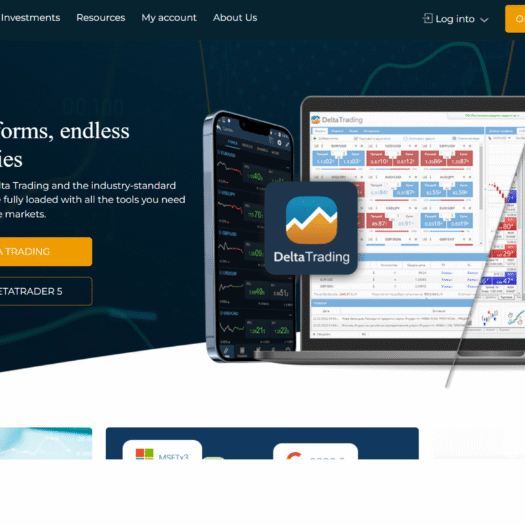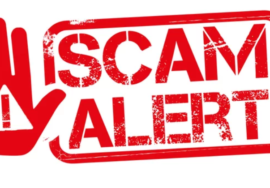
7 Clear Strengths and Risks of Deltastock Every Trader Should Know
7 Clear Strengths and Risks of Deltastock Every Trader Should Know

Deltastock is a forex and CFD broker based in Bulgaria that claims long-standing experience, EU regulation, and a variety of trading platforms and instruments. On the positive side, many of its features look credible and attractive to serious traders. On the negative side, there are some trade-offs, warning signals, and user-feedback issues that demand close attention. Below are seven clear strengths and risks that you should be fully aware of before trading with Deltastock.
1) Regulation under MiFID II via Bulgarian FSC gives solid EU baseline
One of Deltastock’s main positives is that it is regulated by the Bulgarian Financial Supervision Commission (FSC) under MiFID II, with license number RG-03-146. This means it must comply with EU-level regulation, including client fund segregation, risk disclosures, reporting obligations, and investor protections afforded under EU law. According to its “About Us” / legal information, it is fully licensed and authorised under these rules. These regulatory credentials are much more reassuring than many brokers operating under weak or offshore jurisdictions without equivalently strong oversight.
2) Long operating history with multiple instruments and platform options
Deltastock has been operating since 1998. It offers forex, many CFDs on shares, indices, commodities, futures, and more. It supports multiple trading platforms, including its proprietary “Delta Trading” platform and MetaTrader 4 (though sometimes with limitations depending on instrument or region). This kind of variety is positive because it allows traders to choose what suits them best in terms of functionality, interfaces, and tools.
3) Transparent legal & risk documentation, with EU-standard disclosures
Deltastock publishes detailed legal information: About Us, Risk Warning, Terms of Use, EMIR reporting compliance, etc. On its site, there is a statement that 61% of retail investor accounts lose money when trading CFDs with this provider. It also has clear contact addresses, registered office in Sofia, Bulgaria, and regulatory license details. Traders who like seeing disclosures and legal clarity will see this as a plus.
4) Mixed feedback from users — good in many respects, serious complaints in some
User reviews from Trustpilot and forums paint a mixed picture. Many traders praise Deltastock for fast execution, solid platform reliability, good support, and clean on-boarding. But several user reports also complain about delayed or refused withdrawals, slippage (especially during volatile market periods), platform instability, or that the actual spreads differ from those advertised in some cases. These kinds of complaints are not unheard of in regulated brokers, but their recurrence suggests real risk that conditions may vary depending on your region, trade size, and timing.
5) Costs and fees are somewhat high / variable
According to reviews on broker-rating sites such as TradersUnion, Deltastock’s safety score is in the “medium” range (about 5.8/10) in part because its fees and costs are not consistently among the lowest. Spreads, commissions, or non-trading fees (withdrawal, deposit, currency conversion) may erode profitability, particularly for small-account or high-frequency traders. Also, some traders report that advertised spreads are sometimes applicable only under ideal conditions, which may not be the norm.
6) Platform stability and withdrawal speed are decent but not flawless
From reviews, many users report that withdrawing via bank wire or other established methods works, sometimes within a few days. The proprietary platform “Delta Trading” is viewed positively for its features once learned. However, some reviews mention that during periods of high market activity, there is slippage or quote lag. Also, a handful of users say withdrawals (especially via credit/debit card or less standard methods) are slower or face delays. These are important caveats: execution and access to funds are key to trust.
7) Warnings and regulatory notices in certain jurisdictions
Though Deltastock itself (the Bulgarian regulated entity) appears genuinely licensed under EU rules, there are regulatory warnings in some countries about similarly named or confusing “Delta-Stock” or “Deltastock” entities. For example, the Danish financial regulator has issued warnings against a firm using name “Delta-Stock” operating in Denmark without authorisation. Some negative reviews allege people were misled, given accounts under different sites, or contacted via entities not clearly connected with the licensed Deltastock. This kind of brand / naming confusion poses risk, especially for people in jurisdictions with strict licensing requirements.
Conclusion: Final Verdict on Deltastock
Deltastock is a broker that has many features that align with what serious forex/CFD traders often look for. Its foundation under EU regulation (MiFID II via the Bulgarian FSC), long history (since 1998), published legal and risk documentation, multiple platforms and instruments, and many positive user reports all point toward a provider that is more credible than many unregulated or offshore-only brokers. If you are based in the EU or in a jurisdiction where its regulatory protection applies, those features are particularly meaningful and give you a far better chance of fair treatment, legal recourse, and access to funds under rules that protect retail investors.
However, Deltastock is not without its flaws and risk areas. The “medium security” safety rating on rating sites reflects this: although regulation is real, it is not under a top-tier watchdog like FCA UK, ASIC, or certain others (Tier-1). That means some features of investor protection common under the strongest regulators may be weaker or less enforced. Also, costs (spreads, commissions, deposit/withdrawal or conversion fees) are not always among the lowest, especially for traders who expect ultra-cheap pricing or who trade at high volumes. These cost elements can eat into profits more than many beginners anticipate.
User feedback is mixed; many praise platform features, execution speed, support, and reliability under normal conditions. But some serious complaints around withdrawal delays, slippage under volatile conditions, and occasionally the difference between advertised spreads versus live experience appear repeatedly. Such complaints are not unusual for many brokers, even well-regulated ones, but the frequency and similarity of themes suggest that if you choose Deltastock, you should test it very carefully first: use small amounts, make small profits, and attempt withdrawals early to confirm how smooth the process is in your region and with your payment method.
Another risk is name confusion. Some less scrupulous entities appear to use similar names (“Delta-Stock”, “Deltastock.io”, etc.) or domains that may not be exactly the same as the licensed entity. This can lead traders into using an unregulated or misleading site unknowingly. Regulatory warnings in places like Denmark emphasize this hazard. Always verify the precise company name, its license number, matching registered address, and whether local regulators list them as authorised.
So, should you use Deltastock? Yes — with caution. If regulation in Bulgaria (and the EU) works for you, if you trade moderate volumes, accept not having the ultra-cheapest pricing everywhere, and are ready to test the live experience, Deltastock can be a reasonable broker. If instead you need tightest costs for high-volume trading, absolute maximum regulatory strength, or minimal risk of withdrawal friction, there may be better brokers out there.
If I were advising someone now, I would suggest:
- Open a small account (minimum funded), make trades, and try a small withdrawal first.
- Verify all legal documents, especially license number, registered address, risk disclosure.
- Monitor spreads in live trading under different market conditions (volatile, low liquidity times).
- Keep records, including screenshots of quotes, execution, withdrawal statements.
- Avoid sending large sums before you verify everything works reliably in your country and with your payment method.









